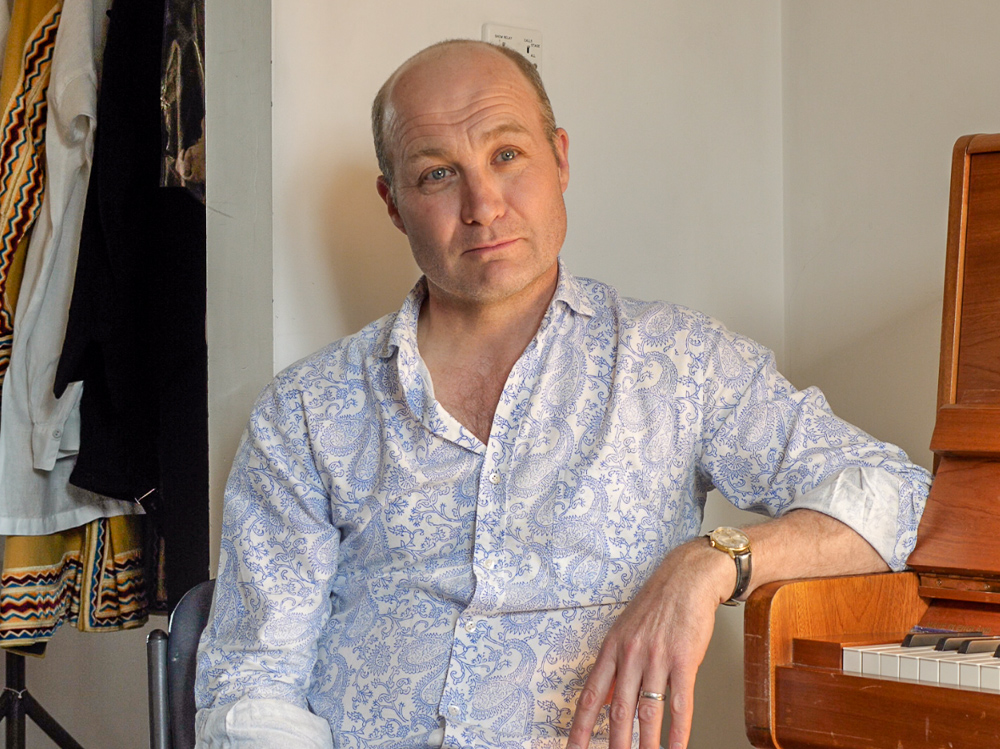Q&A with tenor Hubert Francis
Australian-born Hubert Francis is one of the leading singing actors of his generation.
An RNCM alum, he works with conductors Benini, Bychkov, Domingo, Joel, Jurowski, Koenigs, Pappano and Salonen; directors Curran, Jones, Loy, McVicar, Pountney and Tchernikov across four continents. We caught up with the character tenor at the Royal Opera House on his memories of the RNCM and trajectory as a singer.

What do you remember about your time at the RNCM?
I immediately think of the people who trained us at College. Stagecraft with Jennifer Hamilton who’s now at Trinity College of Music, Elaine Bevis, Stefan Janski, Geoffrey Saunders – all these wonderful people we had. My wife Anne-Marie Gibbons is also a singer and studied at the RNCM.
As a student I wasn’t necessarily a natural singer. I remember sometimes getting up to sing and some of the star students would shift in their seats with embarrassment. But I worked and I worked and I worked. Of course we also had great facilities at the Northern, which are still regularly the envy of the London colleges.
I also remember Geoffrey Saunders was fantastic for physical interpretation. Sometimes in his movement classes he would do a 20-minute or half hour assisted meditation class. I still meditate to this day to really centre and focus, 20 minutes before I go on stage or earlier on in the afternoon if I’m sharing a dressing room.
What are your memories of Manchester?
We are talking 1996. I cycled for six years living there – first living in Longsight for two years and then Whalley Range. I love the Northerner forthrightness, it reminded me of home. I think Australians and the Northern English are quite similar.
While in London you have the Royal Opera House and the English National Opera, in Manchester you have Opera North not too far away, fantastic concerts at The Bridgewater Hall and let’s face it – you can be in London in two hours anyway. It’s also a lot cheaper living in Manchester and there’s a great airport on your doorstep for travel.
What are some of the challenges of the job?
I love my job; I love what I do but having two kids and being away from home so much can be really hard. Sometimes when you’re on the road and it’s -15 in Helsinki and you’re thinking, ‘I’m not on call tomorrow but I am the day after and I wish I could get home but it’s just not possible’. But then when you’re in full flight on the stage with a full orchestra you think, ‘Jesus, this is fantastic.’ You’re fulfilling your dream. So it’s never easy, but my Dad always used to say ‘make your hobby your job’ , and overall I feel very fortunate that I’ve been able to do that.
Did you always want to be a singer?
I apparently sang before I talked. My mother said I hummed. I was always drawn towards the stage and could mimic people and accents easily. I was an exchange student in Switzerland after finishing school in Sydney and the choir master said ‘Oh, you should do something with your voice when you get back to Sydney’. And that’s exactly what I did. I worked in the airline industry in public relations for a decade before choosing to pursue singing seriously and came to Manchester to study when I was 28.
What are some of your career highlights?
One that comes to mind was rehearsing and performing Tosca here at the Royal Opera House when Jonas Kaufmann performed Cavaradossi for the first time and Paolo Gavanelli was Scarpia. Jonas is such a generous colleague on stage and Paolo a consummate artist as well, and if any of us inflected a line slightly differently the other would react immediately. I’d never heard such a response from a Covent Garden dress rehearsal before.
If you weren’t a musician what do you think you’d be?
I wouldn’t mind being a speech and language therapist. I would like to know more about the human production of sound and how it ties into the brain. And I love languages. I’m a German speaker, studied seven years of French and I did Russian, Czech and Italian at College.
Do you have any advice for aspiring singers?
While it becomes incredibly fulfilling to work at the very top level, just having a great voice isn’t enough to get there. You always need to keep looking forward and surround yourself with good ears – a teacher who will be honest with you and truthful. The work never stops; you have to remain at your best and you’re only as good as your next performance.
Patience is also important, because a voice might take a long time to fulfil its potential – sometimes decades. People think, ‘Oh jeepers I’m a 21-year-old undergrad or 25-year-old postgrad at College’. Be patient, be persistent and surround yourself by good supporting people and trust your gut. One last thing is I would encourage all students to learn languages, they are so important and you have to make yourself as employable as possible.
21 October 2019

